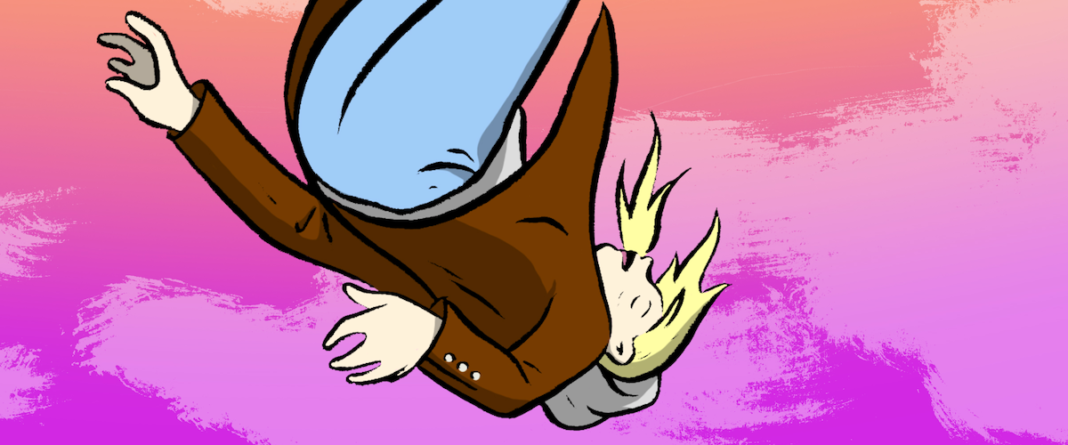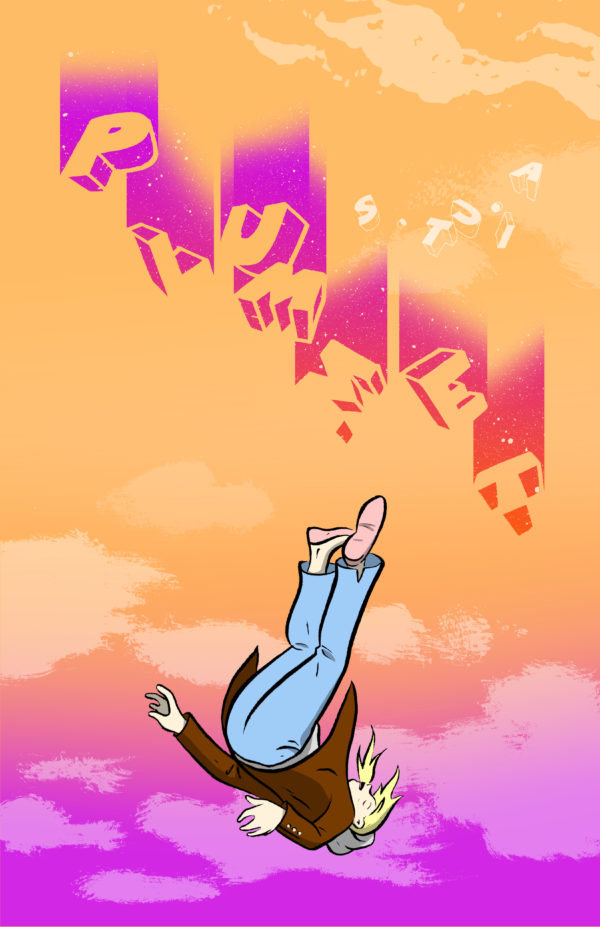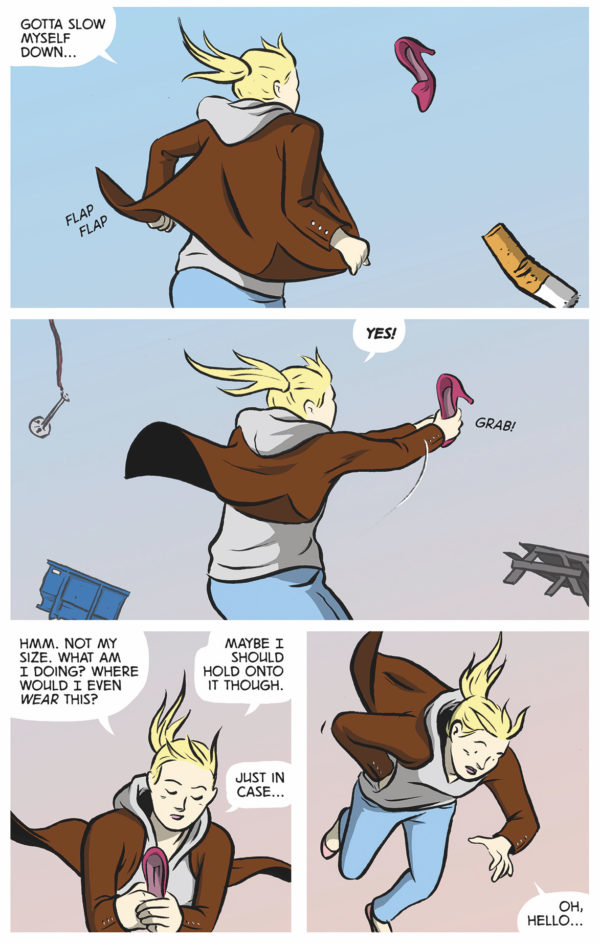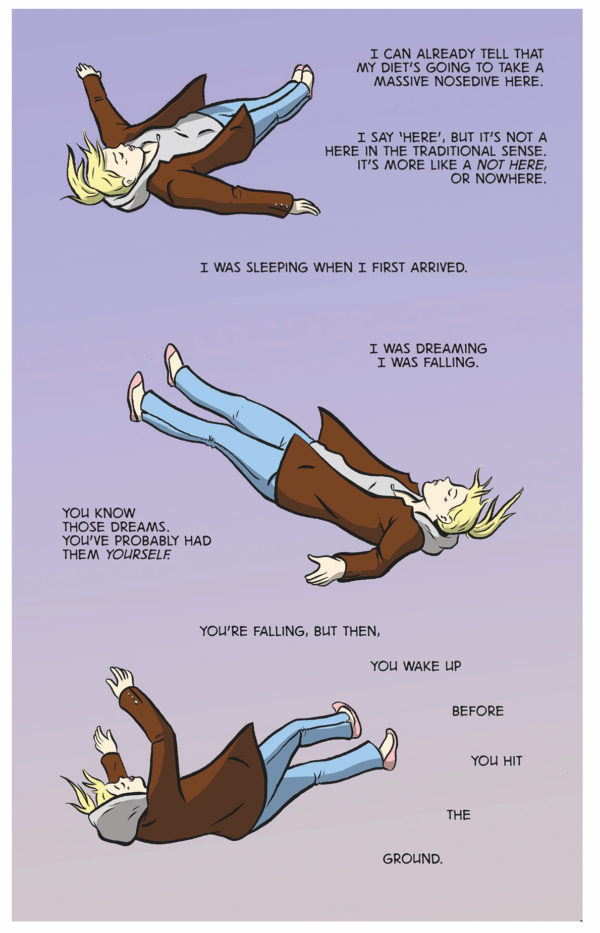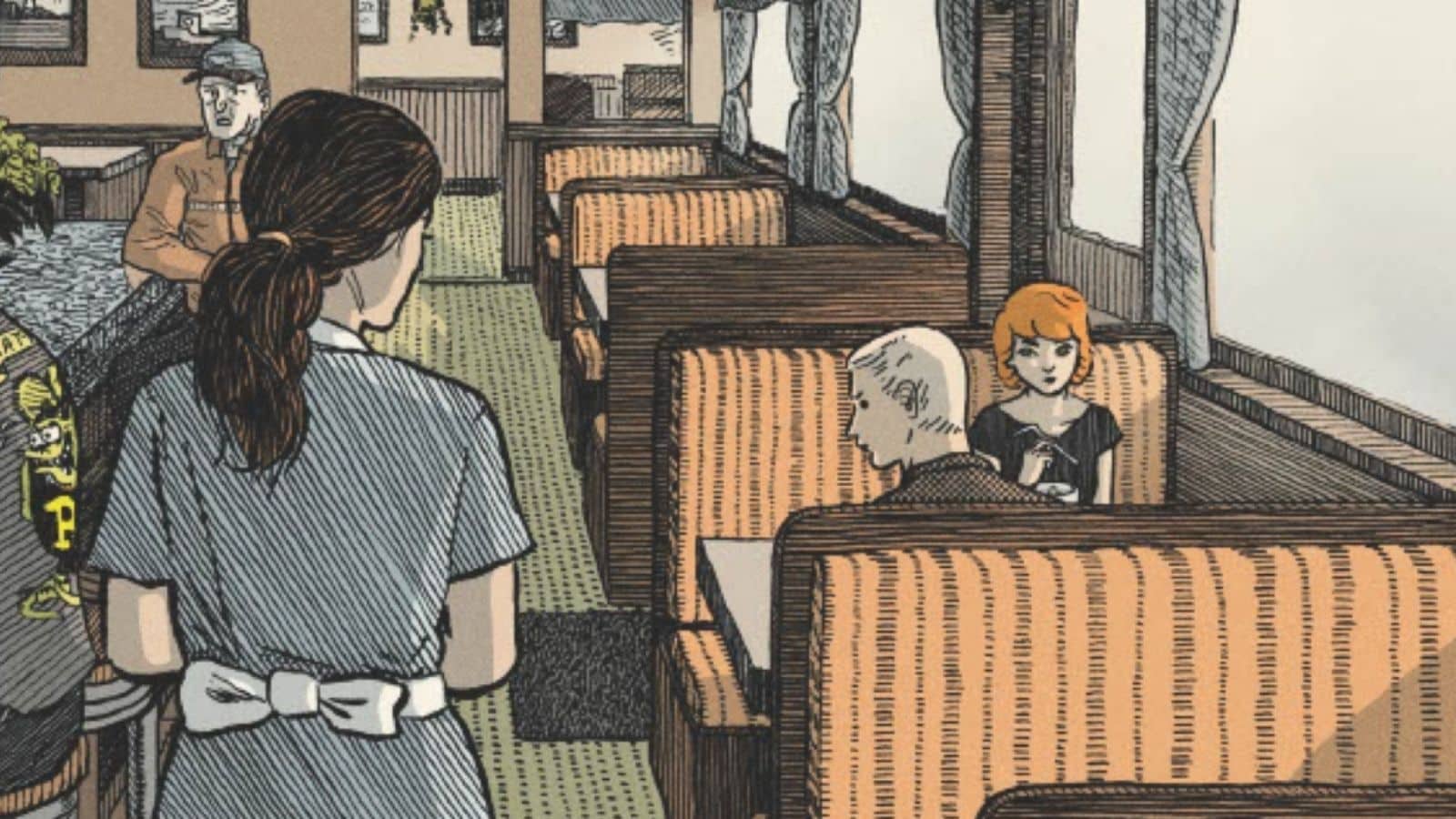Plummet
By Sherwin Sullivan Tija
Conundrum Press
The premise of Plummet, the frenetic new graphic novel from Montreal-based writer and artist Sherwin Sullivan Tija, is very simple, but sometimes stark simplicity creates such a clean slate that complexity becomes a natural manifestation of the story. A high level of simplicity can usher in an equally high level of mystery, and Tija uses this to propel Plummet.
Plummet is about a woman named Mel who is falling. And falling. And falling. She falls continually over 140 pages, and at no point is there an end in sight. Really you don’t want there to be an end because you don’t want to see Mel smashed against a surface, and yet that may be the inevitable halt to her perpetual drop.
Mel’s freefall through an endless sky is not premeditated by anything, we aren’t shown what happened right before, and according to Mel, she had fallen to sleep. Other items soon appear, also falling with her — a shoe, a vending machine, a two-story building with small but attractive balconies. Practical concerns begin to arise, like going to the bathroom, and also eating, or more to the point, finding something to eat.
But the most practical concern Mel faces is the time she has to pass while falling through the sky. A lot of that time, you can imagine, is spent trying to figure out what is going on. Sometimes she sleeps, and her vivid dreams can bleed seamlessly into her new, very strange reality and disorient her enough so that she doesn’t know what is actually going on at that moment. Aside from the most concerning question she has — which is the question of what and why this is happening — there is also the question of whether she is alone in this. And that is eventually answered also with a frank observation about human nature that is pivotal to any given post-apocalyptic story for sure.
In a way, that’s the genre Plummet falls into more than any other. There is actually something post-apocalyptic about it, but symbolically so. It’s as if the entire world was blown to kingdom come, but instead of being destroyed, it just reached the very height of kingdom come and then reversed direction thanks to gravity, careening back to where it came from. Mel exists in an ever-changing cascade of human debris. The detritus of human civilization dance around her in the air, taunting her that the life she once knew is gone.
Tija says that the inspiration for Plummet came from the sight of people jumping out of the Twin Towers on 9-11 and free-falling down to earth. But Tija doesn’t opt for the tragedy and horror of that imagery, or at least as we perceive it as the watchers. Instead, Tija places the action within the context of the person falling and then adds a purity of the moment by giving it no context. Placed in such an eternity, contemplation — sometimes frantic, sometimes calm — becomes the guiding reaction to the state Mel finds herself in.
And there is an aspect to which it becomes apparent that we are all in a form of freefall by just living. Life is a direction we are pulled in without seeing the ending. Unexpected situations float and fall beside us, offering us choices for interaction. Most tellingly, we don’t know the purpose of this freefall we all find ourselves in. In that way, Tija has concocted a perfect metaphorical fable for just living life and accepting that it’s a mysterious and absurd journey that we are thrust into.


